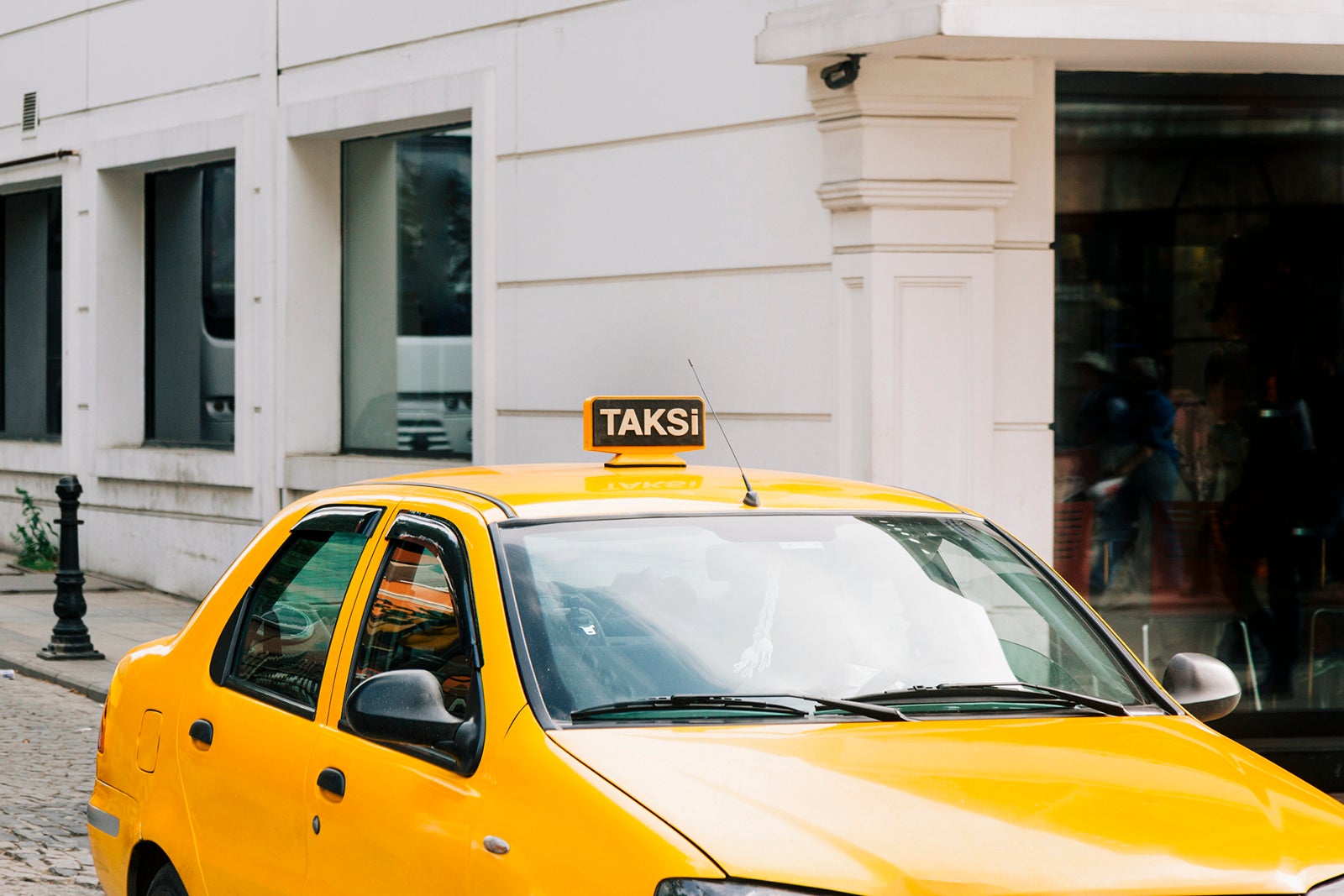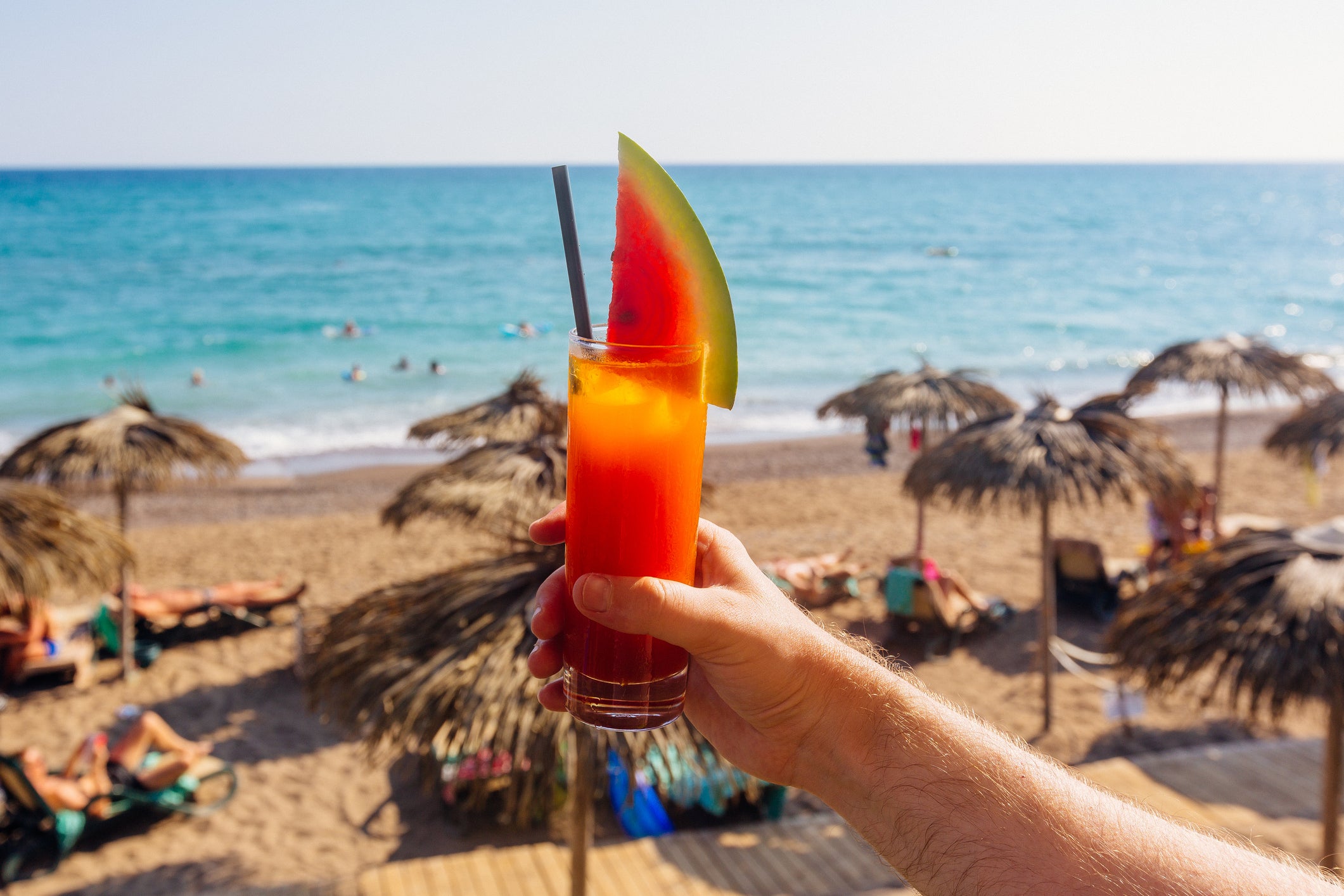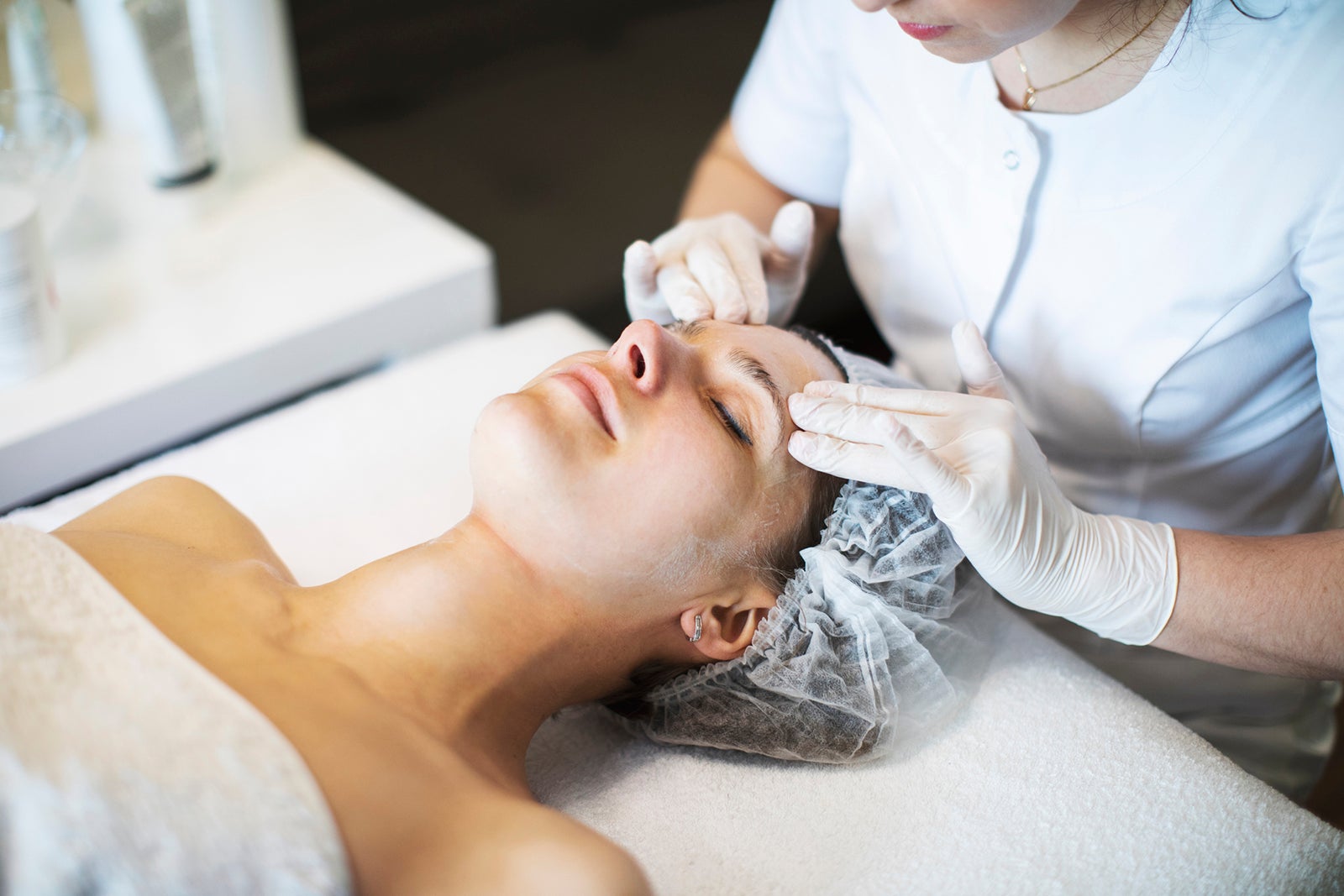When Harry B. and his spouse stepped aboard Royal Caribbean’s Freedom of the Seas, they anticipated a tranquil vacation in the tropics. Purchasing $10,000 worth of skincare products was far from their agenda, yet that’s exactly what Harry mysteriously ended up doing when their cruise docked in the Bahamas.
Harry — whose surname I’m omitting due to his extreme embarrassment over the incident and his belief that he fell victim to a crime — suspects that the merchant must have spiked the cocktails he was served with drugs to persuade him to make such a lavish purchase.
As a consumer advocate who has handled countless complaints from travelers suffering from post-vacation buyer’s remorse, I have a different theory about what transpired.
I refer to it as … vacation brain.
Many travelers drop their guard while on vacation, engaging in behaviors they would never consider at home. For example, they may impulsively buy high-ticket items without having sufficient knowledge about the product.
Regrettably, scammers are well aware of this tendency, and when they spot those large cruise ships arriving at port, they’re ready to pounce.
Cruise ship passengers need to be on alert for these tactics, too.
Here’s a rundown of the most recent schemes and outright scams that cruise ship guests should watch out for while exploring ports of call.
A ‘free’ gift during your cruise port visit
As you stroll through any shopping area during your port visit, you will likely be offered a complimentary bracelet or some other small trinket. This enticing freebie is often used to lure cruise ship passengers into legitimate or dubious jewelry shops.

Daily Newsletter
Reward your inbox with the TPG Daily newsletter
Join over 700,000 readers for breaking news, in-depth guides, and exclusive deals from TPG’s experts
If you accept the free bracelet and head inside, you’ll be handed off to a salesperson who perfects their skills thousands of times a week. These individuals view cruise ships as a substantial source of potential buyers.
You’ll be met with friendly chatter before being bombarded with high-pressure sales tactics aimed at persuading you to purchase a piece of jewelry to “memorialize” your trip. The salespeople are aware their time with you is fleeting, so their pitch carries a sense of urgency, mentioning that the jewelry you’re eyeing is in “limited quantity.”
Many cruise ship passengers arrive unprepared for such a hard sell and struggle to extricate themselves from these stores without making a purchase.
Related: The biggest mistakes cruise ship passengers make on port days
This particular scheme isn’t necessarily a scam, as many reputable jewelry stores can be found in cruise ports throughout the Caribbean, a region renowned for duty-free jewelry shopping.
The issue arises when passengers become enamored with the stunning jewelry and the charming salesperson, leading them to spend money beyond their budget. Once back on board the ship, the allure fades, and buyer’s remorse sets in.
How not to get scammed: If you’re not interested in purchasing jewelry during your cruise, refrain from accepting any complimentary bracelets or trinkets. No vendor genuinely wants to give you something for free; they aim to subject you to a high-pressure sales routine. Simply keep walking and buy a bracelet for $1 at the local market instead.
If you are considering buying jewelry during your cruise, ensure you research the merchant and the specific gemstones you’re interested in beforehand. Additionally, set a budget and stick to it, regardless of how intense the sales pitch may become.
The discount excursion scam
If you disembark your cruise with no specific plans, you become an ideal target for an excursion scam.
This scheme typically involves a friendly individual at a temporary kiosk or storefront who tells you about an exciting adventure run by a local. This excursion is often priced significantly lower than those offered by your cruise line, but it comes with a hidden price tag.
On this excursion, your driver will take you to locations where they earn a commission for bringing you. Generally, you’ll end up at a private factory for a tour, with the intent to encourage you to spend money on the products being made there. Many cruise ship passengers report feeling pressured to purchase items just so the tour will conclude.
Upon your return to the port, hopefully in time for your ship’s departure, you’ll be frazzled, low on cash, and holding an array of unexpected souvenirs.
Related: Cruise scams: Why you should toss that ‘free cruise’ card in the trash
How not to get scammed: It’s wise to use a reputable tour seller, like Viator, to explore what non-cruise-line-sponsored excursions are available at your destination before disembarking. You can read reviews from real customers who have previously participated in those tours and check their prices as well.
If you realize you want to take an excursion after leaving the ship, locate the tourism information booth usually found near the pier. It’s crucial to ensure you’re booking with a legitimate, licensed tour operator.
Avoid booking an excursion spontaneously from someone who approaches you on the street; this is almost always a mistake you will regret later — especially after returning from a factory tour.
Can you hold this for just a second?
Many tourists worldwide have experienced confusion as a stranger on the street requests their help holding something for “just a moment.” These scammers — and they are indeed outright con artists — aim to baffle their victims, making it seem legitimate for them to hold shells or other items. Once that object is placed in the victim’s hand, the scam is underway.
Next, the stranger demands payment for the item you’ve been asked to hold. Any protests from the victim merely lead to the scammer insisting that the item was just bought. Some cruise ship passengers have even reported being confronted or threatened when they refused to pay cash.
How not to get scammed: Never accept any item from a stranger. In the Bahamas, this item is often a large conch shell, but I’ve witnessed various scammers offering smaller shells, branches, and other odd items. Regardless of what the item is, it’s merely a ploy to extract money from you.
Related: The most common travel scams in Europe — and how to avoid them
Unofficial, unmetered taxis
Another pitfall cruise ship passengers should avoid during a port stop is using unmetered taxis.
Often, those disembarking from their cruise aim to escape the bustling port area and uncover the highlights of their destination, but some waiting drivers have different intentions.
Tourists should steer clear of unofficial, unmetered taxis.
There are many safety issues associated with hopping into a vehicle of an unknown driver in your port of call. First, they might not even be licensed to operate a vehicle, much less a taxi. The presence of unlicensed drivers in the Caribbean is not uncommon, making it hazardous for your safety.
Moreover, the driver of an unmetered taxi is often motivated to take you for a financial ride. Passengers report being taken on convoluted routes to give the impression of a long journey when in reality, it’s quite short. Ultimately, the fare you’re charged will reflect that lengthy ride.
While these deceitful practices can also occur with metered taxis, a legitimate taxi driver is less likely to risk their job over a few extra bucks. Regardless, always have an idea of your destination and its expected fare to ensure everything is clear before your ride starts.
How not to get scammed: To safeguard your safety and finances, always opt for an official transportation service. These typically display a placard or license, depending on your location. If you’re unsure what an official taxi looks like at your destination, visit a tourism booth for guidance before entering any vehicle.
A free cocktail and a fabulous travel club
Many distressed consumers have reached out to me after returning home from a trip with an expensive travel club membership they never wanted. This situation is concerning, as a consumer advocate’s power is limited when a traveler has signed a legally binding contract in a foreign country.
This scheme usually involves a legitimate travel club company sending representatives to cruise ports to gather potential “victims.” The bait in this operation is a free day pass to an attractive resort, alongside complimentary drinks and food while visiting.
Cruise ship passengers are whisked away from the port to a tropical paradise.
However, there’s a catch. While indulging in several cocktails and experiencing the effects of vacation brain, passengers are required to attend a travel club presentation. That’s where everything tends to go awry. Many drunken vacationers unintentionally find themselves signing a travel club contract at the end of the session.
Related: Avoid these mistakes when booking cruise shore excursions
Sadly, once they regain their sobriety, they realize they don’t want the travel club, but they’re bound by a legally enforceable contract. Compared to the U.S., where consumers generally have a three-day window to rescind their membership, many travel club and timeshare contracts abroad do not offer such grace periods. Once signed, the deal is final.
How not to get scammed: Before accepting a free day pass somewhere, ensure you understand what your obligation is in return. If hard selling isn’t your thing, skip it. For years, travelers returning home with the burden of an unanticipated travel club membership have filled my helpline.
Never sign a contract after consuming even one cocktail. If a salesperson presents a contract after you’ve had one or more drinks, snap yourself back to reality. If you feel interested, request a copy of the details to take home for further research. Should the company refuse, claiming the deal is only valid if you sign immediately, decline and ask to be returned to the port.
A free facial and an unexpected $10,000 purchase
This brings us back to Royal Caribbean passenger Harry, who ended up spending $10,000 on dubious skincare products.
The free facial scam is notorious around the globe. “Facialists” entice you into their establishments with the promise of a complimentary treatment. Once you accept that invitation, they’ll inform you that your skin has various issues. Fortunately, they have an amazing product ready to fix it all.
In Harry’s experience, he recounted that a salesperson nearly dragged his wife into the store.
My wife and I succumbed to this well-planned scam of high-pressure sales that started with free skin treatment samples distributed outside the store. I hesitated, but they took my wife by the hand and offered her a 10-minute facial. I followed her in to prevent her from being pressured into purchasing anything. They began applying the product while pouring us what was purportedly champagne. To escape the gathering group of salespeople extolling the product’s virtues, I begrudgingly agreed to a $200 purchase.
However, that was merely the beginning of this port-of-call debacle. Upon realizing they had their victims hooked, the sales representatives ramped up their efforts.
Related: Things you should never buy on a cruise ship (or in port)
As the alcohol kept flowing, they introduced even more products, claiming one could cause Harry’s bald head to sprout hair. He later acknowledged how absurd that sounds and speculated that perhaps it wasn’t merely champagne he was consuming.
“We were then served hard liquor and, I believe, drugs. The closer brought out a light wand device that supposedly enhances the skin treatment. To summarize, by the time we left that establishment, we had racked up a $10,000 bill across two credit cards.”
Confused and dazed, the couple returned to the Freedom of the Seas laden with bags full of all the items they never intended to buy.
Harry reported sharing their experience with their adult children aboard the ship but did not file a report about their suspected drugging to Royal Caribbean at that moment. They submitted a formal complaint weeks later.
That delay in reporting the incident was a miscalculation. By then, any evidence of wrongdoing by the merchant was no longer available, and Harry had returned home with all the products, despite not wanting any of them. As expected, his bald head hadn’t sprouted hair, nor did his wife experience any significant transformation. None of the products performed as claimed.
However, the $10,000 charge was unarguable.
Since then, Harry has explored every possible route to receive a refund for what he believes was over-the-counter facial cream. He initiated a credit card dispute, which Chase denied, stating that he received all the items purchased that day. Their receipts explicitly stated “nonrefundable and all sales are final.”
Next, he lodged a complaint with the Florida attorney general alleging elder abuse by the merchant. Naturally, the Bahamas lies beyond the jurisdiction of any U.S. attorney general, rendering that complaint ineffective.
Ultimately, Harry reached out to me in the hope that I could persuade Chase to overturn the charge. He also suggested that other government entities in the U.S. investigate this merchant.
I conveyed to the frustrated couple that U.S. laws are not applicable in the Bahamas, and the nonrefundable terms of the skincare products solidified the sale. Chase can only reverse the charge if the items weren’t received, which was not the case; Harry left the store with exactly what he agreed to buy.
Bottom line
Regrettably, certain “vacation brain” missteps are irrevocable, and Harry’s is certainly one of them. He hopes others can glean insights from his distressing situation to steer clear of similar mistakes.
Exploring various ports during a cruise is enjoyable and exhilarating, but the quickest way to spoil your vacation is to fall prey to a scam or unexpectedly spend thousands of dollars on unwanted purchases. Prepare yourself for the common scam tactics, and you’ll likely evade being taken in by schemers.
Planning a cruise? Begin with these articles:


















